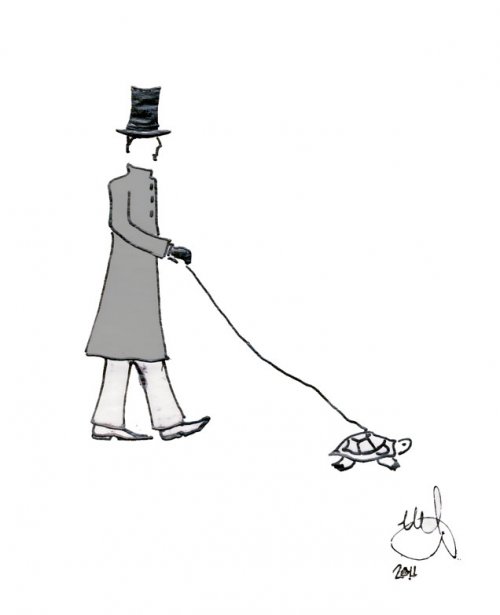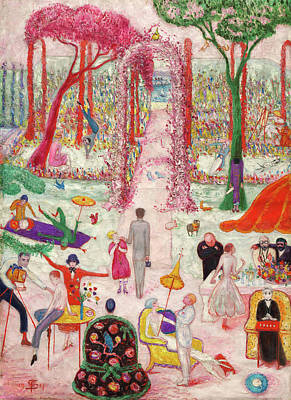by Ethan Stone 11am Class Period
Everyday, as I walk to get food – since classes are a thing of the past – I pass hundreds of new faces that I have never seen before. In those faces, it is incredibly easy to see a nose, eyes, a mouth, and maybe even some facial hair. But when I see a new face, it is much more interesting to look a few inches deeper: the brain. Most people you see on a college campus have lived a minimum of eighteen years. Some people, such as professors and campus staff, have lived much more. Each person has experienced millions of situations, smelled millions of scents, and seen millions of sights. These experiences shape, damage, and create each person into who they are today. Each person’s life is worthy of its own movie, but they are all movies that I will never get the opportunity to watch.

The weirdest feeling I have ever had occurred over this past winter. I am from a small town in Missouri called Maryville. As the only “Techian” from my school, it had been months since I had last seen my best friend, who went to Missouri University. Up to that point, me and the bestie had done everything together. The shared experiences were far more numerous than the non-shared,but four months is a long time. In those four months, she had made a bunch of friends, went to parties, and studied through tough classes, and for the first time, I only got to hear about it in stories. This reminded me of one of the most crucial facts of life: time keeps chugging. Time apart from somebody does not mean they stop living, their experiences are just as crucial to them as mine are to myself.
This feeling can be extrapolated. Imagine a neighbor during your childhood. While you were getting through third grade, he was mentally preparing for college during his senior year of highschool. While you were learning that sedimentary rocks have layers, he was going through the toughest breakup of his life. As you were sad that you could not get a “Transformers” toy from ToysRUs, he just got accepted into the college of his dreams. These major experiences you are going through are completely irrelevant to him, and vice versa. You saw him get ready for school every day, hop into his Jeep, and live his life, and you had no part in it. This does not mean it never happened though. To your neighbor, those experiences were very real. He fell asleep each night with anxiety about his relationship, and excitement for his academic future, all the while, you had no idea any of those events occurred.
I have this exact same relationship with my city. (Did you forget this blog post was about a city? Yeah me too.) Maryville, Missouri – where I live – is a short hour and a half drive from Kansas City. Kansas City is the closest metropolitan area to myself, and I have been there maybe eight times total. I feel as if I have a very similar relationship to Kansas City as the relationship explained above. Everyday, life just goes on. I have my own life, and Kansas City has its own.

Kansas City is mega weird. First off, there are two Kansas Cities – Kansas City, Kansas and Kansas City, Missouri. KCK has an approximate population of 152 thousand people, whereas KCM has a population of 486 thousand. Each side is split by an imaginary state border and the Missouri River. Now, you might think, wait, KCM is considerably larger than KCK, and you would be absolutely correct. So, why is it called Kansas City when the large majority of the city’s population resides in the Missouri half? The only response I would have to that is, Kansas City is weird, man.
Did you know that little fun fact? I did not. Not until looking it up for this blog post at least. Why is that? That is a super cool story that everybody should know. We all know so many weird facts about New York City. Most everybody knows that NYC is split into five boroughs: the Bronx, Brooklyn, Manhattan, Queens, and Staten Island. Most people know about Philadelphia’s history regarding the writing of the constitution and formation of our country. Most people know about San Francisco’s reputation for being ripe for technological advancement and start-ups. I bet a large majority of people even know that the Space Needle is located in Seattle. Outside of sports teams and the little fun fact I told you above, what do you know about Kansas City? Nothing? Yeah, me neither. Nobody does.

Maybe this is pandering, but I feel as if Kansas City is the perfect representation of a flâneur. The flâneur is someone who strolls through the city, observing, but not participating. In the minds of most people, this is how Kansas City acts. There is something interesting about the flâneur, however. While we characterize them as “loafing” and as mere observers, they still have lives that continue on, with no knowledge to us. Flâneurs go through heartbreak. Flâneurs go through loss. Flâneurs experience euphoria. Flâneurs experience love. On the world stage, Kansas City is wholly unimportant. It may be seen as just strolling through “life,” housing it’s residents, and employing it’s workers, like any city should. But no. I disagree. Kansas City is no different from the random faces I see while I am walking to get food with my friends. Kansas City is no different from my best friend’s college experience. Kansas City is no different from my older neighbor that I never talked to. Just because I am not there to experience it does not make it any less real, or any less important. Just because New York City gets to be Robin Williams and Kansas City gets to be an audience member crying over the ending of Good Will Hunting, does not mean Kansas City’s experiences are any less important.

This brings me to one of life’s most important questions. Is it ok to be unspectacular? The gut reaction for the Techian’s reading this blog will probably be an astounding no. We, since day one, have been told that we are special, that we must achieve. That feeling of being exceptional is probably what got us into Tech in the first place. I, however, would argue that it is absolutely ok, even preferable, to not be exceptional. A man who enjoys his job, has a happy family, and a good group of friends, is far superior to the man who has millions of dollars of wealth, hundreds of opportunities, and constant media attention. While most of society would reduce the first man to being a “loser” and “boring,” I applaud the non-exceptional. We constantly apply the term greatness to somebody who is at the center of everything, on the stage, in the news. Society hates calm, boring, happy individuals. Michel de Montaigne, the father of modern Skepticism during the French Renaissance agrees with this point. “Storming a breach, conducting an embassy, ruling a nation are glittering deeds. Rebuking, laughing, buying, selling, loving, hating and living together gently and justly with your household – and with yourself – not getting slack nor being false to yourself, is something more remarkable, more rare and more difficult.” I believe this quote perfectly encapsulates the beauty that is Kansas City. Perhaps the tale of the West Virginian bartender who shows up to work, works hard, and comes back to a happy family is not meant for Broadway, but it is his life. He chose it, and he is happy with it. His experiences are important to him. While I could never get excited about his child’s first baseball game, this story loses no value. The silly story of how Kansas City came to become a Missourian City has the same effect.

Maybe Kansas City is boring. Kansas City does not house the Burj Khalifa. Kansas City is not the home of the Yankees. Kansas City is not the birthplace of the United States Constitution. BUT, Kansas City does contain the Town Pavilion. Kansas City is the home of the KC Chiefs. Kansas City was the birthplace of Ernest Hemingway’s work while at the Kansas City Star, a local newspaper. Now, does that sound boring and relatively unspectacular? Of course it does. Does that mean the lived experience of Kansas City means any less to Kansas City? Absolutely not. The story of Kansas City is not sexy, it is not amazing, it is wholly unspectacular. To me, however, that is exactly what makes it great.

Works Cited:
Varmeer, Johannes. “Little Street” http://www.essentialvermeer.com/cat_about/street.html
Stettheimer, Florine. “Spring Sale at Bendel’s” https://fineartamerica.com/featured/spring-sale-at-bendels-florine-stettheimer.html
“What is a Flaneur” http://stkildaflaneur.blogspot.com/2011/05/what-is-flaneur.html

Ethan, I really enjoyed reading your blog! It was by far like nothing I have read before. I found that your many examples throughout the blog were really effective in supporting your claim. Many points were really interesting. In fact, sometimes when I am walking back home and tired after a busy day, I think about all the different people I walk past. I try to think about how everyone views life differently. Some have had a really difficult life, others lost a loved one, and others are doing just fine or are yet to experience the hardships of life. It is always hard to tell, but I surely agree with your point about how everyone in this world has his or her own movie. About Kansas City, I actually thought that KCM and KCK were the same. Thanks for letting me know. In general, I found your blog to be very entertaining, as well as funny at many times. If I would say one thing that could have been improved is establishing a slightly more clear link between your text and the pictures taken during the modernism period. However, I still found your pictures to really support your claim and to better my understanding as a reader.
The title is amazing. The first two paragraphs really struck a chord with me; it’s difficult to watch the people you care about continue on when you are not around, but maybe they feel the same way about watching you continue on. You are not privy to every single thought of a person no matter how well you know them. The writing feels very informal, but I think it works in your favor in the essay. I think it’s interesting how you describe the city as a flaneur, not the people within it. Overall, outstanding essay!